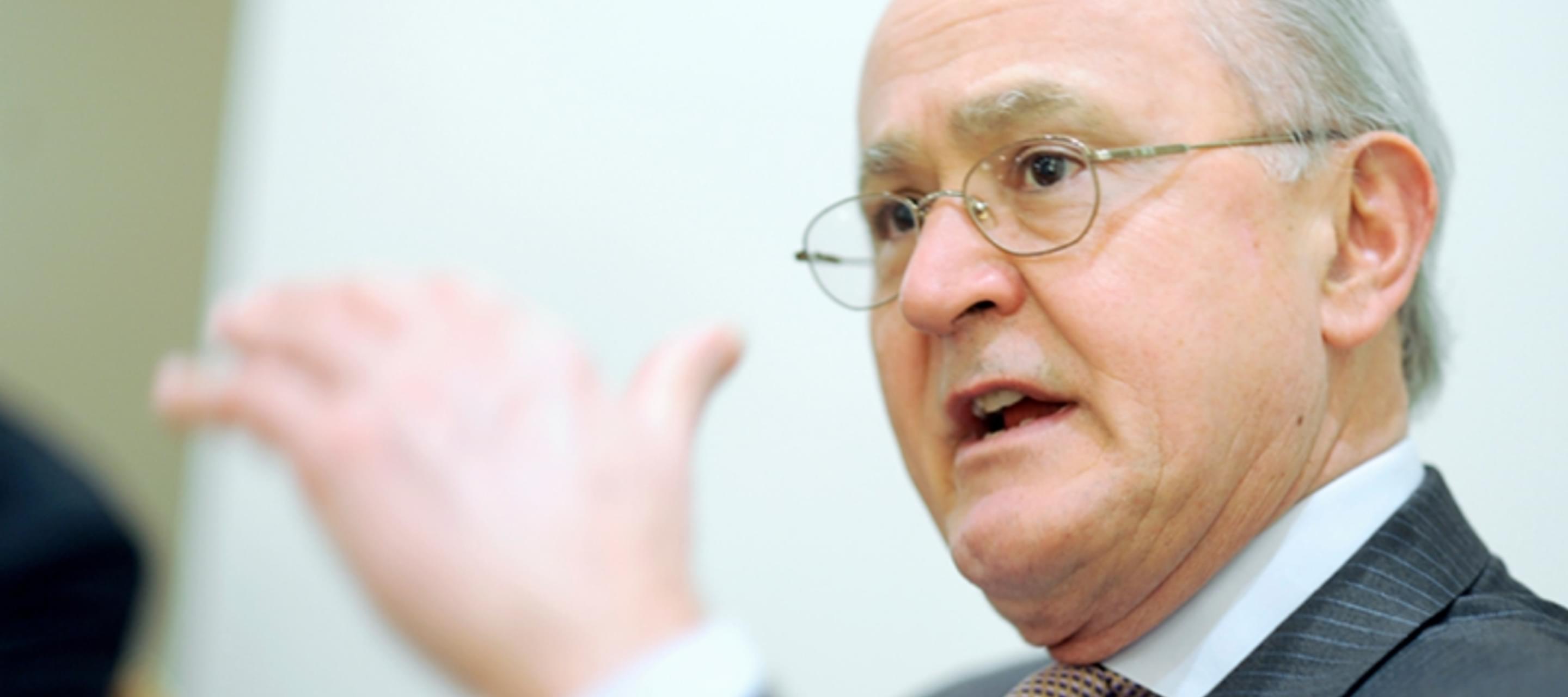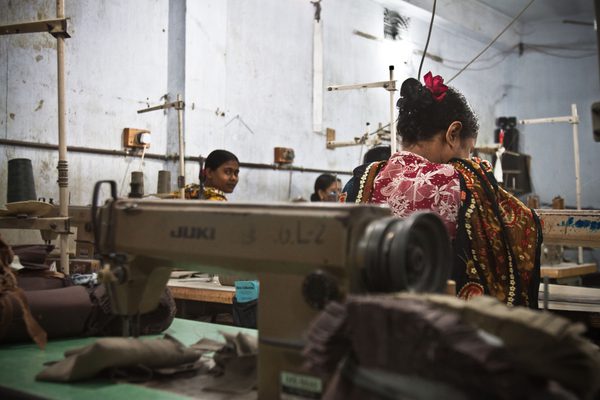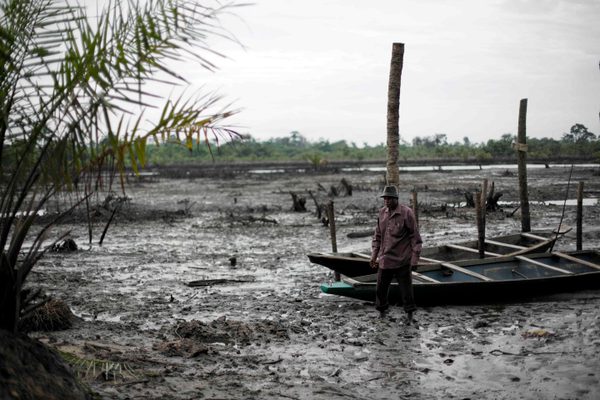Salil Tripathi on John Ruggie's Legacy
20 September 2021

John Ruggie was the man in a hurry. Nobody who knew him could tell when he slept or if he slept. I remember sometimes sending him a question soon after waking up at 6:30 or so in London, assuming that the busy man that he was – the UN Secretary General’s special representative for business and human rights, professor at Harvard – would respond in a couple of days. But more often than not, my laptop would ping within 30 minutes or so, and John would have replied to my query. It would be 2 am in Cambridge, Mass., and he was responding to emails before going to bed, if he did pause.
John was the man in a hurry because he had waited long for real change to occur, improving lives. He had seen how the world was organized and he wanted to change that. And he set us on that path.
He knew that since time immemorial, business had impacts on human rights, impacts which were positive and adverse. From the time of the first-ever transaction, questions had emerged about the fairness of such exchanges, about power imbalance, about who gets access to the market, whether the wages were just, how the workers were treated, how communities and consumers were affected, and who could be held accountable and how. These questions had remained unresolved.
Ideals inspired him, but he knew that making the world work requires bringing nations, businesses, and communities which may not trust one another, together. He was a practical man, a practitioner. He wanted to forge consensus, and he was not one to grandstand. Non-government organisations found the pace slow.
It was bad enough when norms were not developed, and it got worse when norms began getting disregarded: injustice prevailed. People went half-way across the world and traded human beings as slaves, companies came to Asia in search of tea and spices and ended up ruling those societies, some businesses annihilated populations in their pursuit of minerals, and conglomerates, when unrestrained, showed how unjust the system could be. With decolonization, emergence of international regulations and an architecture to govern those relations, the world assumed that those problems would get solved.
John Ruggie understood the architecture well. He interpreted it, explained it, taught it, but most importantly, he worked tirelessly to improve practices about how nations dealt with one another, how liberalism was embedded in the international order, and how the order could be shaped as a force of good – and, in what is his lasting legacy for our work, how we could get business to respect human rights.
The book John Ruggie wrote was called Just Business – ‘just,’ as in fair, rule-based, and norms-respecting; but it was also a deliberate play on the word – that it wasn’t just business or mere regular business, if it could not be just. Being just had to be the norm.
The fall of the Berlin Wall in 1989 had created a massive disequilibrium. John realised early that that the resulting order would be chaotic and business would need rules to avoid a Hobbesian nightmare where, to borrow from Herbert Spencer, only the fittest would survive. Restraints were needed; rampant and unregulated capitalism could not only accentuate and worsen power imbalance, but it would deepen injustice. It was important for the states to increase their capacity to deal with market-based globalisation and it was important for companies to abide by rules.
UN Secretary General Kofi Annan had noted the protests that had derailed the Seattle Summit of the World Trade Organisation in 1999, and he wanted to urge companies to respect a rule-based system. The slow pace at which the international community responded to globalisation had to quicken. Annan had turned to John for advise and support, appointing him as a senior UN official. John helped turn that vision into concrete outcomes. John worked with Annan who would then give a speech at the World Economic Forum in Davos which launched the Global Compact, which has grown from the initial 50, mainly western companies, to thousands across the world. These companies say they would adhere to principles respecting human rights, labour rights, environment, and take measures against corruption. It isn’t enough, but the alternative is worse: the Global Compact reminded companies of their wider, societal responsibilities.
He accepted the world as it was; he knew the restraints that were necessary on the exercise of unbridled power; and he had the optimism to get others around him to agree and use existing mechanisms, and interpret them creatively, to change the world.
In late 1999, Iain Levine, who was my colleague at Amnesty International, suggested I go with him to meet John and his colleague Georg Kell, who were setting up the infrastructure of Global Compact. They were keen that human rights organisations, trade unions, and civil society groups would be part of the Global Compact. Amnesty became an early ally. John’s enthusiasm was enormous, his optimism unbridled but realistic, and his approach respected rules but was never bureaucratic.
John would then help develop the Millennium Development Goals, the forerunner of today’s Sustainable Development Goals. Those goals reminded nation-states about their obligations towards human development and poverty alleviation. He had thought deeply about fixing those problems, but he knew that international consensus is needed to bring about change.
Ideals inspired him, but he knew that making the world work requires bringing nations, businesses, and communities which may not trust one another, together. He was a practical man, a practitioner. He wanted to forge consensus, and he was not one to grandstand. Non-government organisations found the pace slow.
Civil society outrage over human rights abuses was not unjustified. The Niger Delta remains polluted and devastated; victims of the Bhopal gas disaster of 1984 are still awaiting justice. Forced labour has not disappeared, nor has human trafficking. Children continue to be employed in hazardous factories and women workers in garment factories are harassed and underpaid. Security forces in some countries shoot at protesters, and some human rights defenders who challenge companies have been killed with impunity. Sanctions are applied, but unevenly. Voluntary initiatives, however well-meaning, have not ended abuse.
Courts haven’t helped either. Other non-judicial remedies are necessary but not always effective, and the reach of the US Alien Tort Statute has shrunk. Universal jurisdiction is questioned on grounds of extra-territoriality. Outrage over inaction is justified, and outrage is necessary. But turning the outrage from rhetoric to reality, and transforming the expression from catharsis to energy, requires imagination. John knew that the goal – making business work in a just manner – may require imaginative leaps, but it was important that the ground on which you landed was firm.
John did this through principled pragmatism. His original task, as the secretary general’s special representative for business and human rights, was to identify and clarify human rights standards that apply to business. He earned trust and gradually developed consensus so that his mandate could help devise standards. He listened to companies, governments, academics, lawyers, stakeholders, human rights groups, and rights-holders by travelling widely, publishing his findings, and drafting the UN Guiding Principles for Business and Human Rights. The framework he created – state duty to protect rights, companies’ responsibility to respect rights, and the need for a remedy which may be non-judicial or legal as appropriate, where gaps exist, was clear articulation of what was expected.
John knew the need to move beyond rhetoric – through processes, and not declarations; because declarations lead to outputs, whereas improved processes lead to outcomes. And so he reminded business and government of their duties.
He did not write reports denouncing companies, nor did he give false hope to rights-holders. Words are easy; deeds matter, John believed. If he had a magic wand, he would have waved it; but he was not a sorcerer. He accepted the world as it was; he knew the restraints that were necessary on the exercise of unbridled power; and he had the optimism to get others around him to agree and use existing mechanisms, and interpret them creatively, to change the world. He was a serious man with a twinkle in his eye; he had a healthy sense of humour. One evening as I drove him and two of his colleagues from a hotel in central London to my home in North London, he was surprised by the time we took to reach. “You said north London, or north of London?” he asked me as I drove. “It is just a little further, I said. “Do you live in Scotland?” he asked, in his deadpan tone.
He knew the tricks to influence reluctant states. At a meeting with governments, companies, and NGOs, after a diplomat from a developing country criticized multinationals, he pointedly asked the diplomat if his criticism would also apply to companies from his country which were investing in other countries, and which had faced allegations of human rights abuses. The diplomat had not expected such a question; he bristled and was at a loss for words, saying he meant western multinationals. But John would have none of that. He had succeeded in turning the mood away from focusing only on multinationals or on companies only from certain jurisdictions – because even small companies can have significant adverse impacts, and some of them are state-owned, and some are multinationals from emerging economies.
It is a tribute to his skills that the framework he developed for business and human rights was robust and inclusive, and was adopted by a body as divisive as the Human Rights Council unanimously.
For John knew the need to move beyond rhetoric – through processes, and not declarations; because declarations lead to outputs, whereas improved processes lead to outcomes. And so he reminded business and government of their duties.
Those who saw the framework only as words were in for a surprise. Governments had to create national action plans, and the focus had to be on action, it had to be national, and it had to be a plan with measurable outcomes. And if companies thought respecting rights only meant doing no harm and writing an elegant policy, they were in for a surprise too – the guiding principles expected companies to implement the policies by identifying salient impacts, measuring performance, reporting the performance, and taking corrective action to mitigate and prevent harm. Due diligence was not a tick-box exercise, but an iterative, ongoing process. Companies had to walk the walk, and they had to know and show; the guiding principles were the floor, not the ceiling.
He was an exceptional practitioner of global governance, who understood the consequences of the abuse of power, and the need for mechanisms to restrain abuses to build a just world.
Today, hundreds of companies are familiar with the UNGPs and many are conducting impact assessments. They are exploring effective due diligence. They know special circumstances require enhanced or heightened due diligence. When their actions fall short, civil society groups are calling them out and citing the UNGPs in their reports. Court judgments have begun citing the principles. International organisations have mainstreamed them. And countries are requiring mandatory human rights due diligence. Respecting human rights is no longer a voluntary, corporate social responsibility initiative. It has to become part of the company’s DNA.
Some governments and NGOs now want a binding treaty. That’s not an alternative to UNGPs; rather, it builds on the principles. The principles show the path; the treaty is one way to enforce compliance. How the treaty is shaped – what abuses should it cover, who is responsible, who would prosecute if there is going to be a tribunal, which laws would apply, should domestic remedies be exhausted first, are all legitimate questions that need further debate. Such debates delay justice and that is frustrating. But we know the path now, and we need to walk that path.
John was the second chair of the Institute for Human Rights and Business. He was our patron, and we will miss his friendship, guidance, and wisdom. He was an exceptional practitioner of global governance, who understood the consequences of the abuse of power, and the need for mechanisms to restrain abuses to build a just world.
He leaves an enormous legacy, reminding us that the kind of globalisation which leads to abuses of rights and allows businesses and governments to operate with impunity is neither just, nor fair, and certainly not sustainable. Through his framework – protect, respect, remedy – he succinctly showed what we need to do next. We will miss him enormously but we are grateful for the path he has laid out.




